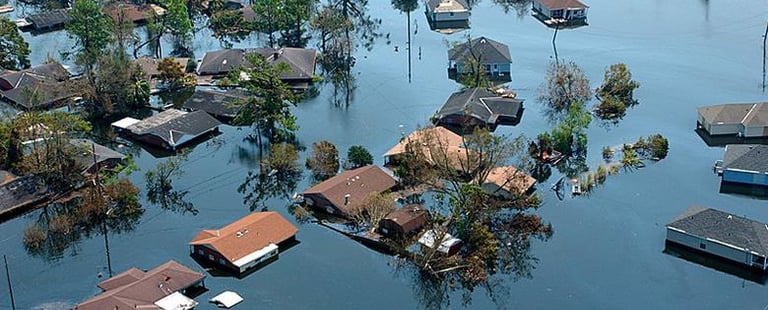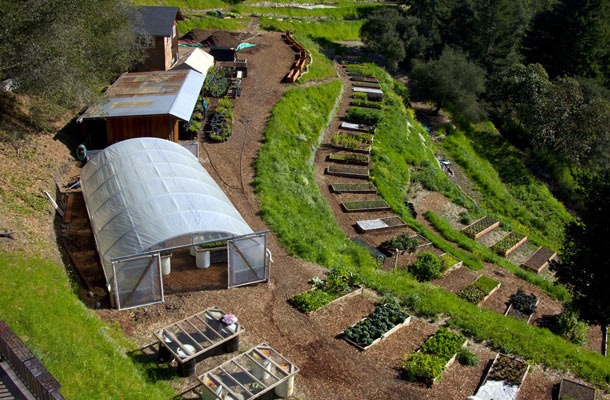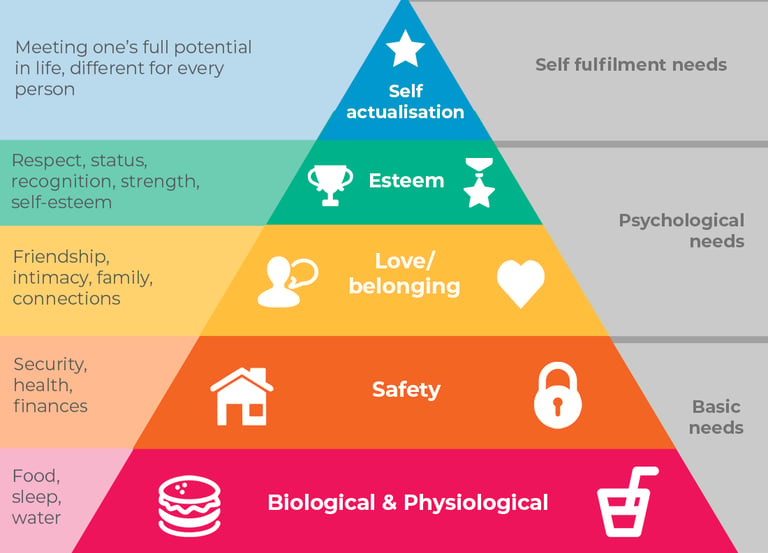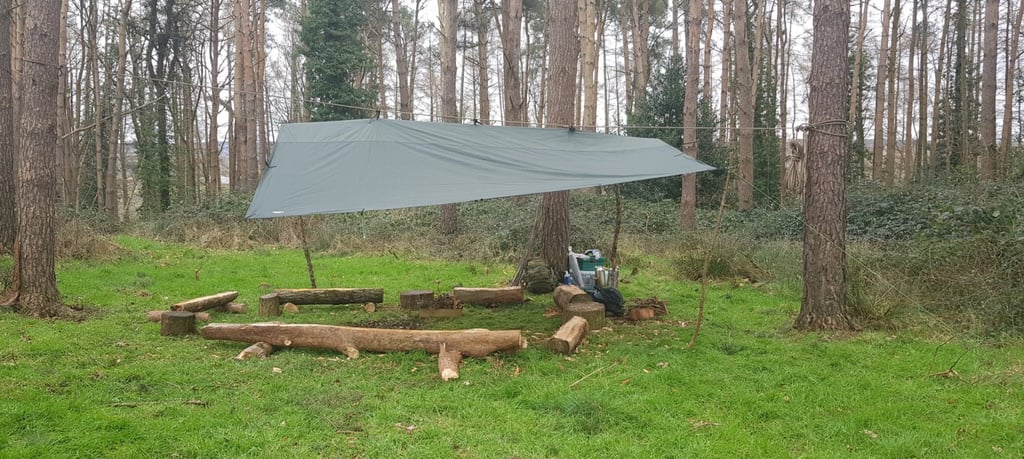What are we preparing for?
In a world of uncertainty, preparation becomes not just a choice but a necessity. As preppers, we are often asked, "What are we preparing for?". It's a question that devles deep into the core of our beliefs, values, and understanding of the world around us.
Gabriel
4/30/202414 min read
Beyond Conspiracy Theorists
When you hear the word "prepping," what comes to mind? Perhaps you envision individuals hoarding supplies in underground bunkers, preparing for the end of the world. While this stereotype may dominate popular culture, prepping is a practice that extends far beyond conspiracy theorists. In fact, prepping can be a practical and sensible approach to life for anyone. In this article, we will explore the reasons why prepping is beneficial and how anyone can implement it into their lives.
One of the key benefits of prepping is the ability to be self-sufficient in times of crisis. Whether it's a natural disaster, economic downturn, or even a personal emergency, having the necessary supplies and skills to survive can make a significant difference. By stockpiling essential items such as food, water, and medical supplies, preppers are able to ensure their own well-being and that of their loved ones. This level of preparedness can provide a sense of security and peace of mind, knowing that you are not solely reliant on external resources.
Moreover, prepping goes beyond just physical preparedness. It also involves acquiring knowledge and skills that can be invaluable in various situations. For example, learning basic first aid techniques, self-defense strategies, and even gardening can all contribute to a well-rounded prepping lifestyle. These skills not only enhance your ability to survive in challenging circumstances but also empower you to help others in need. Prepping is not about isolating oneself from society but rather about being a responsible and capable member of it.
Another benefit of prepping is the opportunity to save money in the long run. By purchasing items in bulk or growing your own food, you can reduce your dependency on expensive commercial products. Additionally, prepping encourages a more sustainable and self-sufficient lifestyle. For instance, learning how to preserve food through canning or dehydrating techniques can help minimize food waste and extend the shelf life of perishable items. This not only saves money but also promotes a more environmentally friendly approach to consumption.
Furthermore, prepping can foster a sense of community and connection with others. In times of crisis, preppers often come together to support and assist one another. This community-oriented mindset can lead to the formation of strong bonds and networks that can be relied upon during challenging times. By sharing knowledge, resources, and experiences, preppers can create a supportive and resilient community that transcends the stereotypes often associated with prepping.
In conclusion, prepping is not just for conspiracy theorists; it is a practical and sensible approach to life that can benefit anyone. From being self-sufficient in times of crisis to acquiring valuable skills and knowledge, prepping offers numerous advantages. It enables individuals to save money, live sustainably, and foster a sense of community. So, whether you are preparing for the worst-case scenario or simply seeking a more responsible and prepared lifestyle, prepping is a path worth considering.
1. Emergency Preparedness
One of the primary reasons why prepping is good is its emphasis on emergency preparedness. Disasters can strike at any time, whether it be natural disasters such as hurricanes, earthquakes, or floods, or man-made crises like power outages or economic downturns. By being prepared, individuals can mitigate the impact of these events and ensure their safety and well-being.
Prepping involves stockpiling essential supplies such as food, water, medications, and first aid kits. It also includes having backup power sources, communication devices, and emergency plans in place. By taking these precautions, individuals are better equipped to handle unexpected situations and protect themselves and their loved ones.
Emergency preparedness goes beyond just having physical supplies on hand. It also involves mental and emotional readiness. Preppers understand the importance of staying calm and level-headed during a crisis, as panic can often lead to poor decision-making. They practice mindfulness and stress management techniques to maintain a clear mind and make rational choices in high-pressure situations.
Furthermore, prepping encourages individuals to develop a network of like-minded individuals who can offer support and assistance during emergencies. This can include joining local community groups, attending survivalist workshops, or participating in online forums. By connecting with others who share similar values and preparedness goals, individuals can exchange knowledge, skills, and resources, creating a strong support system that can be relied upon in times of need.
Another aspect of emergency preparedness that prepping promotes is continuous learning and improvement. Preppers understand that the world is constantly changing, and new threats or challenges may arise. Therefore, they stay updated on the latest news, research, and techniques related to emergency preparedness. They attend seminars, read books and articles, and participate in training exercises to enhance their knowledge and skills.
Overall, emergency preparedness is a crucial aspect of prepping. It encompasses not only physical supplies and plans but also mental resilience, community building, and a commitment to ongoing education. By prioritizing emergency preparedness, individuals can increase their chances of survival and recovery in the face of unexpected events.
2. Self-Sufficiency
Another significant benefit of prepping is the promotion of self-sufficiency. In today's interconnected world, we often rely heavily on external systems and infrastructure for our basic needs. However, in times of crisis, these systems can fail or become overwhelmed, leaving individuals vulnerable and dependent on others.
Prepping encourages individuals to become more self-reliant by learning essential skills such as gardening, food preservation, and basic medical knowledge. By cultivating these skills and having the necessary supplies, individuals can become less reliant on external resources and more capable of sustaining themselves in challenging situations.
For example, imagine a scenario where a natural disaster strikes, causing a widespread power outage that lasts for weeks. Without electricity, the modern conveniences we take for granted, such as refrigeration, heating, and communication, become inaccessible. In such a situation, those who have prepared by learning how to grow their own food through gardening and preserve it through canning or drying techniques will have a significant advantage over those who solely rely on grocery stores and restaurants for sustenance.
Moreover, prepping also encompasses developing basic medical knowledge and acquiring first aid supplies. In emergency situations where professional medical help may be limited or unavailable, individuals with these skills can provide vital assistance to themselves and others. They can administer first aid, treat minor injuries or illnesses, and potentially save lives.
Becoming self-sufficient through prepping not only provides practical benefits but also instills a sense of empowerment and resilience. It allows individuals to take control of their own well-being and security, reducing anxiety and fear during uncertain times. By being prepared, individuals can face challenges with confidence and adaptability, knowing that they have the skills and resources to navigate through difficult circumstances.
In conclusion, prepping promotes self-sufficiency by encouraging individuals to acquire essential skills and supplies necessary for survival in times of crisis. By cultivating knowledge in areas such as gardening, food preservation, and basic medical care, individuals become less reliant on external resources and more capable of sustaining themselves and their communities. Prepping empowers individuals to take control of their own well-being and security, fostering a sense of resilience and adaptability in the face of adversity.
3. Financial Security
Prepping can also contribute to financial security. While it may require an initial investment to stockpile supplies and acquire necessary equipment, the long-term benefits can outweigh the costs. By having a well-stocked pantry and other essential items, individuals can reduce their reliance on expensive convenience stores during emergencies.
Furthermore, prepping encourages individuals to adopt a more frugal and self-sustainable lifestyle. By growing their own food, conserving resources, and minimizing waste, preppers can save money in the long run. Additionally, prepping can help individuals become more financially prepared for unexpected events, such as job loss or economic downturns.
One of the ways prepping contributes to financial security is by reducing the need to rely on costly emergency services. During a crisis, emergency services may become overwhelmed or unavailable. By being prepared with essential supplies, preppers can avoid the need to call for assistance, thus saving money on potentially expensive emergency services.
Moreover, prepping can also lead to financial security by providing opportunities for self-employment or additional income streams. For example, individuals who have acquired skills in food preservation or other prepping-related activities can offer their services or products to others in their community. This can not only generate income but also create a sense of self-reliance and empowerment.
Additionally, prepping can help individuals become more financially resilient in the face of economic uncertainties. By having a well-stocked pantry and other essential supplies, preppers can reduce their reliance on expensive grocery stores, especially during times of inflation or economic downturns. This can help them save money and stretch their resources further.
Furthermore, prepping can lead to long-term financial benefits by promoting sustainable practices. For example, preppers often invest in renewable energy sources such as solar panels or rainwater harvesting systems. These investments not only reduce reliance on expensive utilities but also provide long-term savings on energy bills.
In conclusion, prepping can contribute to financial security in various ways. From reducing reliance on costly emergency services to creating opportunities for self-employment, preppers can save money, become more financially prepared for unexpected events, and lead a more sustainable lifestyle. By investing in their preparedness, individuals can protect their financial well-being and gain peace of mind in uncertain times.
Implementing Prepping Into Your Life
Now that we have explored the benefits of prepping, let's discuss how anyone can implement it into their lives:
1. Start with a Plan: The first step in implementing prepping into your life is to create a comprehensive plan. Assess your current situation and identify potential risks and hazards that you may face. Consider factors such as natural disasters, power outages, economic instability, or health emergencies. Once you have identified the potential risks, develop a plan that outlines the steps you will take to prepare for each scenario.
2. Build an Emergency Kit: One of the most important aspects of prepping is having an emergency kit on hand. This kit should include essential items such as non-perishable food, water, a first aid kit, flashlights, batteries, a portable radio, and any other necessary supplies. Make sure to regularly check and update your emergency kit to ensure that all items are in good condition and have not expired.
3. Learn Basic Survival Skills: In addition to having the necessary supplies, it is essential to learn basic survival skills. This includes knowing how to start a fire, purify water, navigate using a compass, administer first aid, and build a temporary shelter. Taking the time to learn these skills can greatly increase your chances of survival in an emergency situation.
4. Stockpile Essential Supplies: Another important aspect of prepping is stockpiling essential supplies. This includes items such as food, water, medications, toiletries, and other everyday necessities. Ideally, you should aim to have at least a three-month supply of these items on hand. Rotate your stockpile regularly to ensure that nothing goes to waste and that you always have a fresh supply of goods.
5. Develop a Communication Plan: In times of crisis, communication is crucial. Develop a communication plan with your family or loved ones to ensure that everyone knows how to contact each other in an emergency. This can include establishing a meeting point, designating an out-of-state contact person, or using alternative forms of communication such as walkie-talkies or ham radios.
6. Stay Informed: Stay informed about current events and potential threats in your area. Sign up for emergency alerts and notifications from local authorities. Stay updated on weather conditions, political unrest, or any other factors that may impact your safety and well-being.
By following these steps, you can effectively implement prepping into your life and be better prepared for any unexpected events. Remember, prepping is not about living in fear, but rather about taking proactive steps to protect yourself and your loved ones. Start small and gradually build up your preparedness level over time. With a little effort and planning, you can create a more secure and resilient future for yourself and your family.
1. Start with a Plan
Begin by assessing your needs and identifying potential risks in your area. Consider the types of emergencies that are most likely to occur and tailor your preparations accordingly. Develop a comprehensive emergency plan that includes evacuation routes, communication strategies, and contact information for emergency services.
When creating your emergency plan, it is important to involve all members of your household or organization. Hold a meeting to discuss the potential risks and how each person can contribute to the overall preparedness. Assign specific roles and responsibilities to ensure everyone knows what to do in case of an emergency.
One crucial aspect of your plan should be the establishment of evacuation routes. Identify multiple routes for different scenarios, such as fires, floods, or earthquakes. Ensure that these routes are well-known and easily accessible to all members of your household or organization. Consider conducting drills to practice evacuations and familiarize everyone with the designated routes.
Communication strategies are also vital during emergencies. Establish a communication plan that includes both internal and external contacts. Internal contacts may include family members, neighbors, or colleagues, while external contacts can be emergency services, local authorities, or community organizations. Make sure everyone knows how to reach each other and have a designated meeting point in case communication channels are disrupted.
In addition to contact information, it is essential to gather important documents and store them in a safe place. This may include identification documents, insurance policies, medical records, and any other relevant paperwork. Consider making digital copies and storing them securely online or in a password-protected USB drive.
Regularly review and update your emergency plan to account for any changes in your circumstances or the potential risks in your area. Stay informed about the latest emergency protocols and guidelines provided by local authorities. By having a well-thought-out plan in place, you can minimize the impact of emergencies and ensure the safety of yourself, your loved ones, or your organization.
Building a stockpile of essential supplies is an important step in preparing for any unforeseen circumstances or emergencies. By gradually accumulating non-perishable food, clean water, medications, and first aid items, you can ensure that you and your family will have the necessary resources to sustain yourselves during challenging times.
When it comes to non-perishable food items, it is crucial to select items that have a long shelf life and provide adequate nutrition. Canned goods, dried fruits and vegetables, rice, pasta, and cereals are all excellent choices. Additionally, consider including items that require minimal preparation, such as ready-to-eat meals and protein bars.
Alongside food, clean water is an absolute necessity. It is recommended to store at least one gallon of water per person per day for a minimum of three days. This will cover drinking, cooking, and basic hygiene needs. To ensure the freshness of your water supply, consider using commercially bottled water or store tap water in clean, food-grade containers and replace it every six months.
Medications and first aid items are also essential components of your stockpile. Make a list of any prescription medications that you or your family members require and ensure you have an ample supply on hand. Additionally, include over-the-counter medications for common ailments such as pain relievers, antacids, and cold and flu remedies. A well-stocked first aid kit should include bandages, antiseptics, gloves, and other essential medical supplies.
As you build your stockpile, it is important to rotate your supplies regularly. This means using and replenishing items before they expire. Create a system to keep track of expiration dates and prioritize using items that are closer to expiration. By doing so, you can ensure that your stockpile remains fresh and usable when you need it most.
Remember, building a stockpile is an ongoing process. It is essential to regularly assess your supplies, update them as needed, and adapt your stockpile to meet the specific needs of your family. By taking these steps, you can have peace of mind knowing that you are well-prepared for any situation that may arise.
3. Learn Essential Skills
Take the time to learn essential skills that will aid you in times of crisis. These skills may include gardening, food preservation, basic medical knowledge, and self-defense. Consider taking courses or workshops to enhance your knowledge and proficiency in these areas.
In times of crisis, being self-sufficient and having practical skills can make a significant difference in your ability to survive and thrive. Learning essential skills can provide you with the knowledge and confidence to navigate through challenging situations. One crucial skill to acquire is gardening. Growing your own food can ensure a steady supply of fresh produce, even when access to grocery stores may be limited. Take the time to learn about different gardening techniques, such as container gardening or vertical gardening, which can be particularly useful if you have limited space. Additionally, understanding food preservation techniques can help you extend the shelf life of your food and minimize waste. Learning how to can, dehydrate, or ferment food can be invaluable during times when fresh produce is scarce or unavailable. These skills not only allow you to preserve your harvest but also enable you to take advantage of seasonal abundance and stock up for the future. Basic medical knowledge is another essential skill to acquire. During a crisis, access to medical professionals may be limited, making it crucial to have some understanding of first aid and basic healthcare. Consider taking a first aid course or learning about common injuries and illnesses that you may encounter. Knowing how to treat minor wounds, manage infections, or provide CPR can save lives in critical situations. Self-defense is also a skill worth investing in. While we hope to never find ourselves in dangerous situations, it is essential to be prepared and capable of protecting ourselves and our loved ones. Taking self-defense classes can provide you with the necessary techniques and strategies to stay safe in threatening situations. Learning how to assess potential risks, deescalate conflicts, and defend yourself if necessary can give you peace of mind and increase your chances of staying out of harm's way. By taking the time to learn and enhance these essential skills, you are equipping yourself with the tools needed to navigate through challenging times. Whether it's growing your own food, preserving it, providing basic medical care, or ensuring your safety, these skills can make all the difference when faced with a crisis. Consider investing in courses, workshops, or online resources that can help you develop these skills and build your self-reliance. Remember, knowledge is power, and being prepared can give you a sense of control and resilience in uncertain times.
4. Connect with Like-Minded Individuals
Joining local prepping communities or online forums is an excellent way to connect with like-minded individuals who share your passion for preparedness. These communities provide a platform for exchanging knowledge, experiences, and ideas, allowing you to refine your preparations and learn new skills.
When you join a prepping community, you become part of a network of individuals who understand the importance of being prepared for any situation. Whether it's a natural disaster, a power outage, or a global crisis, these like-minded individuals are there to offer support, guidance, and encouragement.
One of the greatest benefits of connecting with like-minded individuals is the opportunity to learn from their experiences. In a prepping community, you can find people who have faced various challenges and have come up with innovative solutions. They can share their stories, tips, and advice, giving you valuable insights that you may not have considered before.
Moreover, being part of a prepping community allows you to collaborate on projects and share resources. For example, if you're working on building a sustainable garden, you can exchange seeds, tools, and knowledge with other members. This collaboration not only saves money but also strengthens the resilience of the entire community.
Another advantage of joining a prepping community is the sense of camaraderie and support it provides. In times of uncertainty or crisis, having a group of like-minded individuals to lean on can make a significant difference. They can offer emotional support, share information, and provide a helping hand when needed.
Furthermore, online forums offer the convenience of connecting with preppers from around the world. You can participate in discussions, ask questions, and contribute to the community's collective knowledge. These forums often have dedicated sections for different aspects of preparedness, such as food storage, self-defense, and emergency medical care, allowing you to delve deeper into specific topics.
Remember, preparedness is not just about stockpiling supplies and learning survival skills; it's also about building a network of individuals who can support and inspire you. By connecting with like-minded individuals, you can enhance your preparedness journey and ensure that you are ready for whatever challenges may come your way.
One of the most important steps in ensuring your safety is to stay informed about current events and potential risks in your area. In today's fast-paced world, it is crucial to be aware of what is happening around you. By staying informed, you can make informed decisions and take necessary precautions to protect yourself and your loved ones.
There are several ways you can stay informed about current events and potential risks. One of the most reliable sources of information is local authorities. They often issue updates and warnings regarding any potential risks or emergencies in your area. It is important to pay attention to these updates and take them seriously.
In addition to local authorities, there are other reliable sources of information that you can follow. These include news outlets, both local and national, that provide up-to-date coverage of current events and potential risks. It is important to choose reputable news sources that have a track record of providing accurate and reliable information.
Another way to stay informed is through social media. Many local authorities and news outlets have accounts on social media platforms where they share updates and warnings. By following these accounts, you can receive real-time information and stay updated on any developments in your area.
It is also a good idea to sign up for emergency alerts and notifications. Many cities and towns have systems in place that send out alerts via text message or email in the event of an emergency. By signing up for these alerts, you can receive timely information and instructions on how to stay safe.
Remember, being proactive and staying informed is key to ensuring your safety. By following reliable sources of information and staying updated on current events and potential risks, you can make informed decisions and take necessary precautions to protect yourself and your loved ones.












Connect
Connect with Us
Policies
Copyright © Outlander Outdoors Ltd 2024. We are not responsible for the content of external sites.
